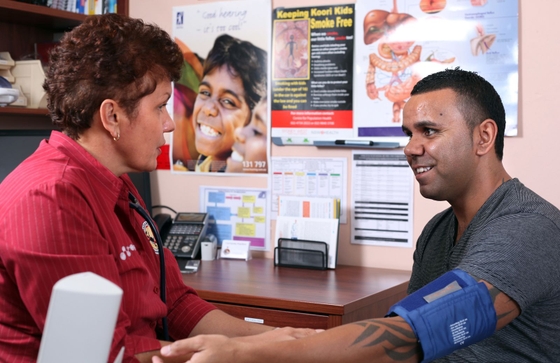
Exploring common pregnancy complications and their links to heart health
Blog: 24 January, 2023
Dr Alison Care was 38 weeks pregnant when, during a routine check-up, her doctor noticed her blood pressure was unusually high.
As an experienced medical researcher in the field of pregnancy health, Alison knew all too well that the cause of her high blood pressure could be preeclampsia, a condition experienced by women during pregnancy. Other symptoms of preeclampsia can include swelling due to fluid build-up, and protein in the mum-to-be’s urine. If it isn’t diagnosed early enough, it can affect body organs including the kidneys, and can be life-threatening for both mum and baby.
Alison said, “Knowing about preeclampsia through my research work, I was really worried that I might have it, so I had a stressful few hours while I waited to find out what was causing my high blood pressure.”
What is preeclampsia?
Preeclampsia affects up to 3% of pregnancies in Australia. It’s caused when the mother’s blood vessels don’t develop properly and can’t supply enough blood to the placenta – the “life support” and blood filtering system that delivers nutrients and oxygen to the developing baby. This affects the development of the placenta and puts the growth and health of the baby at risk.
Medicines used to lower blood pressure often don’t work in preeclampsia, so at the moment, there are very limited treatment options and no cure for it. This means that the baby may need to be delivered early to stop the condition progressing, which can lead to life-long health conditions for the baby. Not only that, but women with preeclampsia have a greater chance of developing high blood pressure and heart disease in future.
Other pregnancy-related conditions
Preeclampsia is one of three common pregnancy conditions along with pregnancy-related high blood pressure (gestational hypertension), and pregnancy-related diabetes (gestational diabetes). In gestational diabetes, the body can’t produce enough insulin leading to higher-than-normal blood glucose levels. About one in three women will experience one of these conditions during pregnancy. But what isn’t often talked about is that women who experience any of these conditions are up to 4 times more likely to develop heart and blood vessel disease in future. This risk remains high for the rest of their life, even after delivering their baby.
Alison’s test results revealed that she had gestational hypertension. However, she wasn’t told that she had a greater chance of developing high blood pressure and heart disease in future or given any advice about managing her condition. “I wasn’t sure whether it was fine for me to clean the house to prepare for the baby, or if I should be lying on the couch resting!”, said Alison.
Searching for a solution
Alison and her research team at the University of Adelaide are working on understanding what causes preeclampsia. They’ve found that a special type of cell – regulatory T (Treg) cells – part of the body’s normal immune system and found in blood, could be important in helping blood vessels to adapt and function properly in pregnancy.
Finding a way to use these immune cells, or make more of them, could help prevent or reduce the severity of preeclampsia. They could also help protect against future heart disease. Dr Care says, “the ultimate goal of our research is to reduce the number of Australian women burdened by heart and blood vessel disease by preventing preeclampsia.”
But Alison hasn’t stopped there. She collaborates with the doctors and nurses who’ve set up a specialised, one-of-a-kind clinic at the Lyell McEwin Hospital in Adelaide (the COFFEE clinic), which provides personalised advice from a Cardiac Nurse Practitioner for women who’ve experienced a severe pregnancy complication, to help them manage their risk of heart disease.
It’s Alison’s hope that one day, there will be clinics like this supporting women across Australia.
The ultimate goal of our research is to reduce the number of Australian women burdened by heart and blood vessel disease by preventing preeclampsia
Dr Alison Care
University of Adelaide
Looking after your health during pregnancy
If you’re pregnant or had a pregnancy-related condition, there are ways to manage your health and reduce your chance developing heart disease. Check out our information on following a heart healthy eating pattern and staying physically active.
If you've ever been diagnosed with gestational diabetes, preeclampsia, or gestational hypertension, talk to your doctor about whether you need a Heart Health Check. Make sure you have regular Heart Health Checks or any other tests your doctor may recommend before, during and after pregnancy.
The Heart Foundation is committed to raising awareness of women’s risk of heart disease and supporting researchers like Alison to understand more about pregnancy-related conditions and heart disease. Read more on our website.
You might also be interested in...

Seven surprising symptoms of heart disease
You’re probably familiar with some of the more ‘classic’ symptoms of heart disease. Chest pain (angina) which might feel like an uncomfortable pressure or heaviness. Palpitations or sensation of a racing heart. Feeling short of breath or having difficulty breathing.

A team effort – your heart and your mind
Struggling with your mental health after a heart event is normal. It is not uncommon for people to experience anxiety, depression, and stress – there is even a name for it, the ‘cardiac blues.’

Under pressure – what is blood pressure and why does it matter?
Almost half of all heart attacks are due to high blood pressure, and the only way to find out if you have high blood pressure is to have it checked regularly.
Last updated05 March 2024